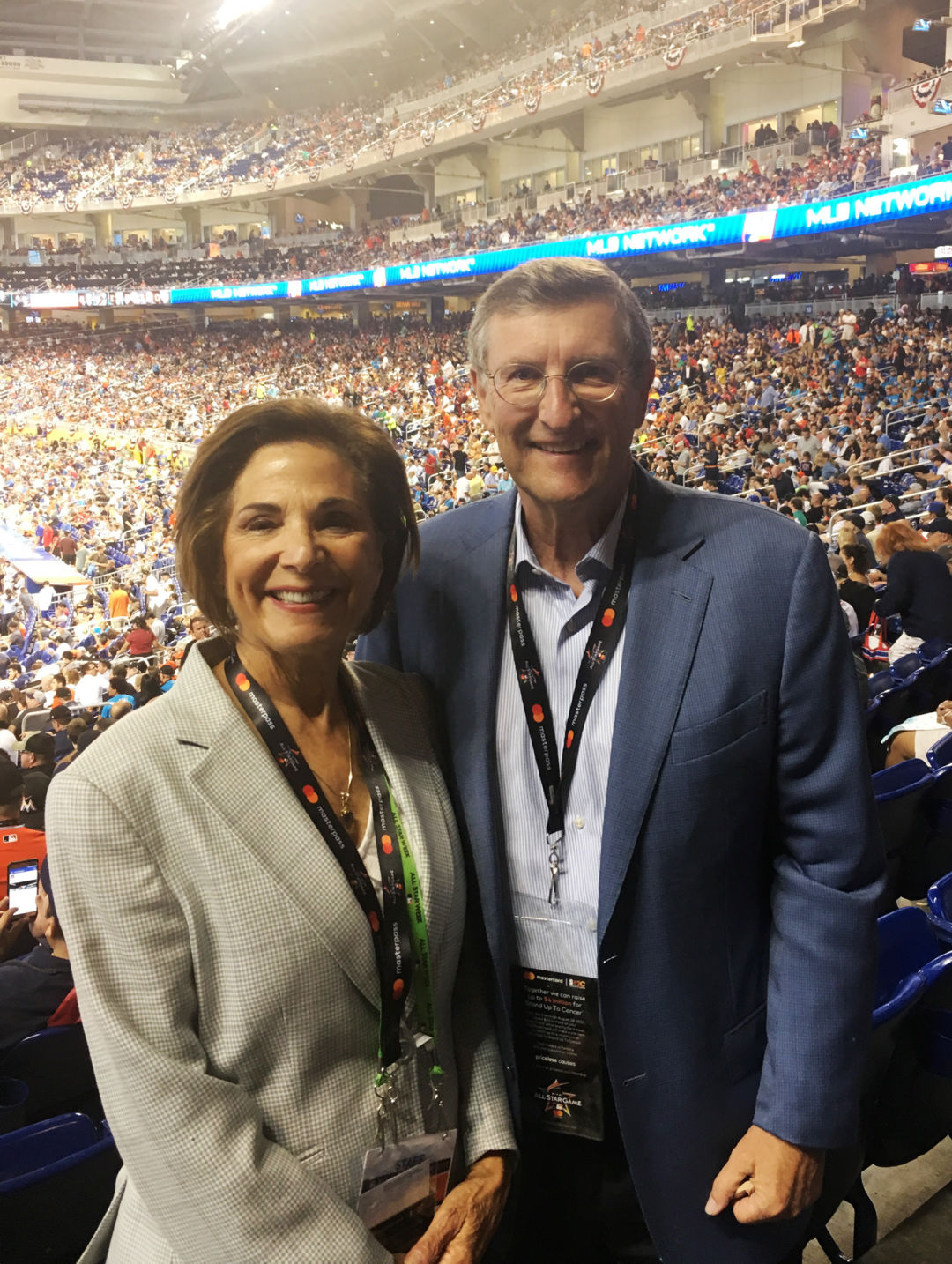Politics, Baseball and Women's Issues Have Fueled Lucy Calautti's Career

No matter how daunting the road, Lucy Calautti has never been afraid to follow her dreams. She joined the Navy in the 1960s when women represented just 1 percent of that branch. Not long after her service, the native of New York City boarded a Greyhound bus for North Dakota, where she was greeted by a minus-28-degree wind chill. Calautti found a home in North Dakota government, eventually becoming the campaign manager for a U.S. Senate candidate who started 38 points behind in the polls. Kent Conrad not only won the race, he married Calautti. In 1999, Calautti, a self-described “baseball maniac,” hatched a plan to attend the All-Star game at Boston’s Fenway Park, where she made her way to the commissioner’s box between innings, tapped Bud Selig on the shoulder and asked him for a job. She got it—becoming director of government relations for Major League Baseball.
Today, Calautti and Conrad split time among homes in Sarasota, Washington, D.C., and North Dakota. Calautti serves as president of the historic National Woman’s Party, which spearheaded women’s suffrage nearly 100 years ago, and which today works on women’s equality issues. She also heads her own government relations firm, Dakota Strategies, which represents Major League Baseball and another of Calautti’s passions, children’s hospitals.
In a recent interview with 941CEO, Calautti reflected on her career and the people who influenced and inspired her.
“My mother and father greatly influenced my values. My father spoke only Italian until he entered first grade. My mother spoke only Yiddish until she entered school. Both parents changed their names to be more American: from Pasquale to Bill and from Yosephine to Judy. Both taught me that in America, hard work brings success. I’ve tried to emulate their work ethic my entire life.”
“I have always been determined that being a woman would not be a handicap. When there was injustice, I was determined to fight it. When I came out of the Navy, women were not eligible for GI Bill benefits. I was an aerial photographer in the Navy, hanging out of airplanes, and I knew that I deserved the benefits men were receiving. So I joined a class-action lawsuit. The suit was successful and it enabled me to attend college, earning a master’s degree in English from North Dakota State University.”
“After graduation, I planned to be a high school teacher, but the superintendent turned me down because he said the school only hired men who could coach sports as English teachers. I would have loved to have coached, but there were no girls’ sports programs then. I filed a civil rights complaint, and was eventually offered the job, but I had already taken another position.”
“My first job in government was for North Dakota tax commissioner Byron Dorgan. I was hired to translate the tax laws into English. I had a sign on my desk, ‘You may know taxes, but leave the syntax to me.’ I eventually became Byron’s chief of staff when he became a congressman and then a senator. At the same time, my husband, Kent Conrad, was a U.S. Senator. We all faced great challenges because North Dakota is a Republican state and here we were Democrats. But we got a lot done because we were always willing to listen to the other side and compromise. I learned, in part from the successes of both Kent and Byron, that doing your homework and being prepared yields victory. If you do that and are willing to hear the other side, you can find common ground. It’s a shame we’re seeing so little of that today in Congress.”
“I’m not a baseball fan. I’m a baseball maniac. It’s a smart person’s game, just the numbers themselves, how they affect every aspect of the game. I particularly love watching pitchers and thinking along with them about what kind of pitch they will throw to a hitter in each situation. It is endlessly fascinating. The New York Mets are my team, but I’ll watch four games a night. In the 1990s, I decided I wanted to work in Major League Baseball. I knew how to run a political campaign. I devised a campaign for getting a job in baseball. I did my homework and found that Commissioner Selig valued strong women. He was married, with three daughters, one of whom took over the Milwaukee Brewers from him when he became commissioner. I devised a plan to go to the All-Star game in Fenway Park. I knew where his suite was and I went down to it, introduced myself and told him why I was the right person to represent baseball in its relationship with government. After 9/11, we joined with the NFL in working with Congress to prevent small airplanes from flying over stadiums during games, which I believe has made the stadiums much safer and removed a source of worry for fans.”
“I have worked in a lot of male-dominated jobs. I never experienced sexual harassment, but like many women, I have felt belittled at times. Having people question whether I was good enough because I was a woman. It takes a toll. But my advice is not to sulk, to exhibit confidence, even if you don’t really feel it, and most of all to keep your head down and just work as hard as you can. I was also blessed to work with men who always had my back. Kent had such confidence in me that he asked me to manage his first U.S. Senate campaign. Early in my career, a North Dakota legislator actually asked me to get him a cup of coffee. Byron Dorgan jumped in and said, ‘You don’t understand. She’s an executive.’ I really appreciated that.”
“I’ve always worked and played at things that make me happy. I believe we should do things every day that make us happy, or else find something different to do. I also believe in having more than one thing that you feel passionate about. It can’t be all work. I’m passionate about my family, politics, women’s issues, baseball, children’s hospitals, and those passions have made my life interesting and rewarding.”


